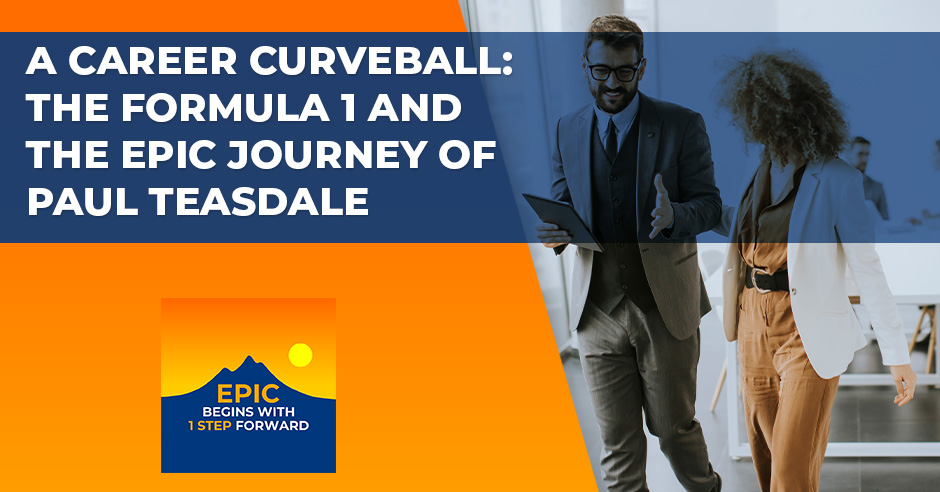
You will find yourself doing amazing things when you say yes to opportunities. Paul Teasdale, a man who has lived a life of adventure and accomplishment, shares his incredible story. From humble beginnings in sausage making to the high-octane world of Formula 1, Paul’s career has been a rollercoaster of unexpected twists and turns. Join us as we delve into the fascinating tale of Paul’s journey. Discover how he transformed his life by seizing opportunities and embracing challenges. Learn valuable lessons about career development, networking, and the power of saying “yes.” Get ready to be inspired by Paul’s unwavering determination and ability to turn seemingly ordinary experiences into extraordinary achievements.
—
Watch the episode here
Listen to the episode here
A Career Curveball: The Formula 1 And The EPIC Journey Of Paul Teasdale
In this episode, I am joined by Paul Teasdale. Paul, tell us a little about who you are.
Firstly, thanks so much for having me on, Zander. I’ve been looking forward to this and loving your show and bringing a huge amount of value to your audience. First of all, kudos for that. About me, I’ve got a bit of an interesting background. I have done everything from sausage making, banking and Formula 1. Lots of different things in between like international shipping, dairy and manufacturing. All sorts of different pieces, but my journey has always been about helping others perform at their best, whether it be in-house or as an external consultant.
I’ve lived and worked mainly in the UK, where I am now and where I was born. I also lived out in New Zealand for a few years working for a couple of big companies out there. I’ve come back and worked with the Formula 1 team McLaren and their business, helping to take some of their ways of working out to other organizations. Now, I work independently, taking all of those lessons, pulling them into a package, and helping people perform at their best.
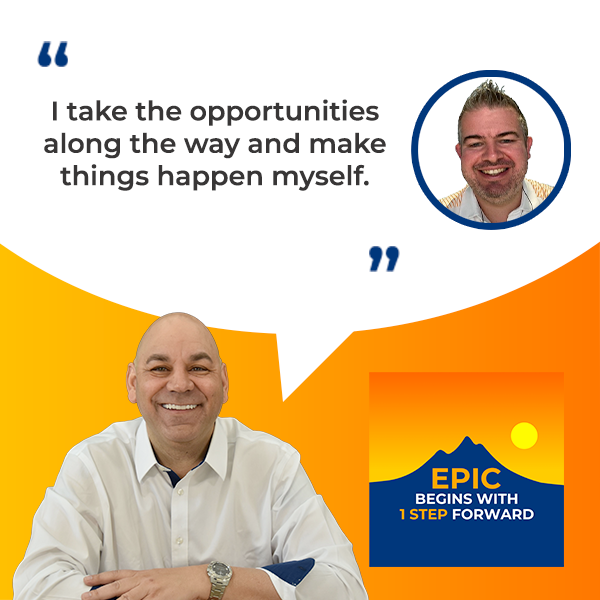
Thank you, and obviously, I was like, “Huge difference from sausage making to Formula 1, especially McLaren. First of all, I’m very interested in that epic journey from stuffing sausages. How did you get to McLaren from sausages?
From Sausages To F1 (An EPIC Journey)
The very short answer is taking the opportunities that come my way and making things happen myself. That’s been a big learning more towards the end of the career or to where the career is. Hopefully, not the end by any means. I started off, I did an Engineering degree. I was always good from a Math and Science perspective. As a lot of engineers, I didn’t have a clue what I wanted to do with that. I went along the engineering roots and into manufacturing engineering, in particular, all the methodologies, Toyota management system, those kind of things.
I started my career with a company that repaired overhold and airplane engine parts. I did that for about a year and realized it wasn’t for me in terms of the role that was there. I then joined another business which was Kerry Foods who make sausages. I was a production manager in a sausage factory for a couple of years or so, working with Amazing people and some amazing products.
Part of the deal was to have to be on the taste panel every day, taste in the previous day sausages, and bacon that we sliced. Basically, I have a free breakfast every day, and I never get tired of it. I learned a huge amount there. Particularly in the people management side, but an opportunity and this is a common theme. An opportunity came my way through a contact to go into a small business. I’m going to say small business. Relatively small in terms of people. Not in terms of turnover and managing international shipping containers.
They were looking for somebody with a manufacturing background to bring performance improvement to their organization. I took that opportunity and said, “Why not? Let’s go for it and see where it takes us.” I ended up helping them predominantly with their invoicing, so tightening up their process and taking all that manufacturing methodology and applied it to this sales channel and movement of shipping containers. It helped them essentially. Their invoice failure rate was about 30% to 40%.
A lot of that was their own fault. The shipping industry is and still is full of pirates. People who will take any opportunity to try and argue against any cost. As soon as they see a small crack that says things are wrong, they’ll question it and push that back. It has a huge impact on the business cashflow. I just took those lessons and applied them. I then got an opportunity to work in a consultancy.
I realized that I was doing this stuff. Essentially being consulted, but I had no training and no development. I was the only person in that organization doing that. I looked outside and said, “How can I get into an organization that gives me the skillset and the confidence to go off and do this?” I worked for a consulting company that focused on food manufacturing in particular, and I did that for a few years, living on the road, in hotels, and working in everything from pizza manufacturing to fruit sorting and everything in between. I had some great times and learned some great things.
I have a new wife at that stage. We’ve been married for less than a year. We were looking to make a move out of London. We’re living in the big city and decided we’re going to make a move. Where should we go? There are other places in the UK like Manchester and Birmingham. We chose Auckland in New Zealand.
That’s a little more on East of Birmingham, but okay.
It’s a leftfield, but again, there are opportunities there. One of the lessons, particularly when you talk about taking steps for your career and moving your career forward. One of the key things I did there was that my sister lived over in New Zealand and still does. We were over for her wedding. Whilst we were there on holiday, I literally went around businesses and picked 3 or 4 that I knew I liked to work for.
I literally knocked on the door and said, “I know you’re not recruiting because I’ve looked at your website, but here’s me. I’m in the country. We’re on the other side of the world. If I can speak to somebody about what I do, this saves a lot of time and effort if the job suits me. Let’s have that chat and do it.” That came to fruition a few months later and we moved out to New Zealand. That was an epic journey on its own.
Paul, what I have to say is, as I was listening, I look at my own career and say, “I graduated with a degree in History and Psychology.” Again, took opportunities that popped up. Got jobs that I had absolutely no right having. Honestly, I love telling people, “Believe me, anything is possible.” I don’t know. Do you know what a Unix operating system is?
I’m aware of it. I couldn’t tell where.
You understand. I somehow got hired to work at a Unix help desk, and I did not know what Unix was in the interview. I don’t know how. First of all, working at a help desk implies that not only do you know it, but you know well enough to help someone else. Again, you and I might share that same belief in yourself that it doesn’t matter that I don’t know how to do this particular thing or I only have a few of the skills that they’re looking for. Yes, I can do that, and then you figure it out. That’s the fun part. I love to encourage people to say, “Only because you don’t know how to do it” Let’s face it. In a job, if you have all the skills that a job requires, why would you want that job? There’s no challenge.
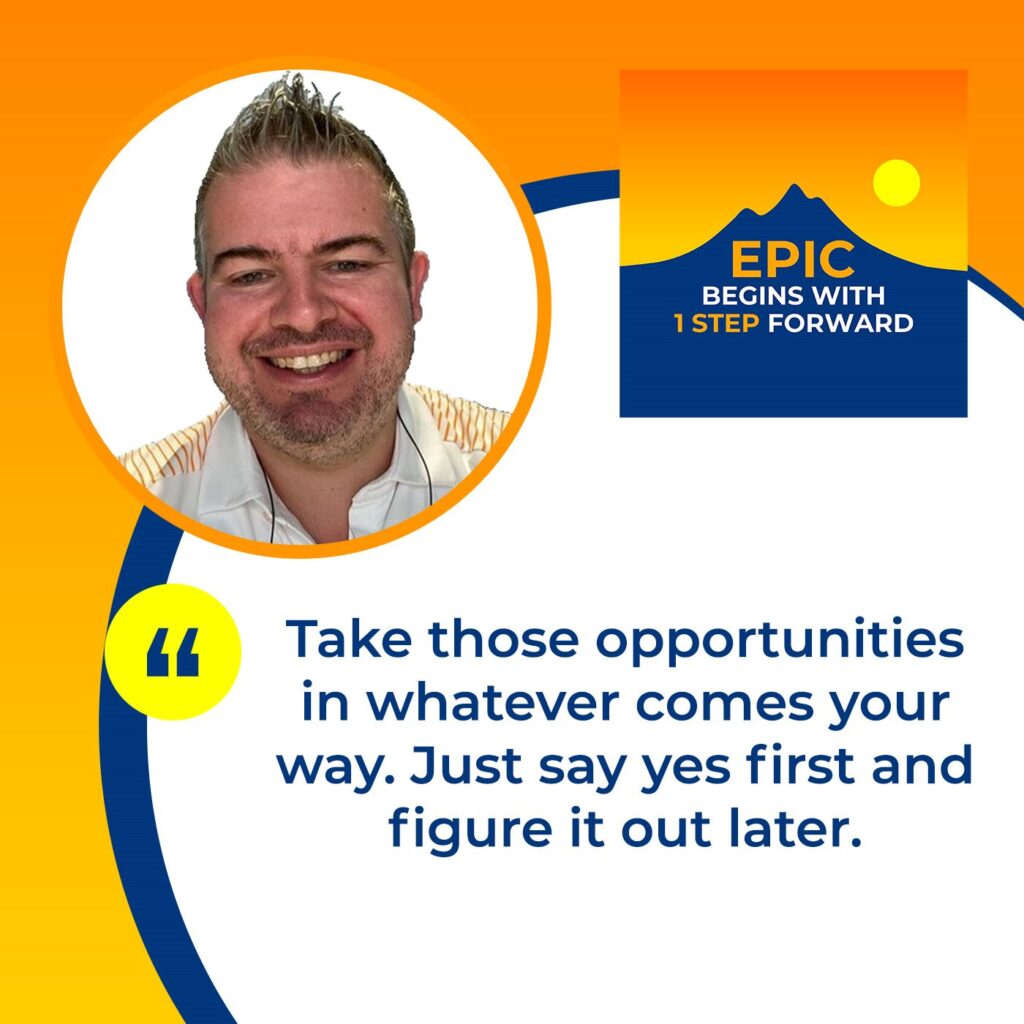
I’ve coached a few people on this as well. There are two stages. One, when I moved from the dairy company I worked at in New Zealand into the banking world, which was a bit of a leftfield step for me because, like you with the Unix, I knew how to spend money on a credit card and that was pretty much it and similarly when I left New Zealand to join McLaren.
One of the first things I said in the interview was, “If you want somebody who knows this industry inside out, then don’t hire me. If you want someone who can bring this completely different experience, has this application, and can move you in these ways and add value in this way, then I’m your man.” That has two key benefits that I’ve found. One is that you will know immediately. You give people the opportunity immediately to say, “No, we need somebody with real experience, so thank you. This isn’t a fit.” That’s great because it saves both of you a lot of time.
It does. You can take a job, and then they’re like, “We needed the skillset.” You’re like, “I didn’t lie. I told you. I’ve been trying to learn this job now.” I’m out of a job of the anxiety there.
The second part is if you can get somebody to say within that first minute or so, “No, that’s not what we’re after.” You’ve opened the door for you to come across and go, “This is how I can add value.” The receptive nature of it is fantastic, and I’ve had great success with that, especially with a couple of big career moves in my time.
My daughters are you F1 fans. I like it, but I’m going to say I didn’t grow up with it. How did you get to McLaren? How long have you worked with them, or are you still working?
I was looking to move back from the bank that worked in New Zealand. My wife and our then one-and-a-half-year-old son, we’re looking to move back to the UK to be closer to the family. What I did and another great thing that people can do is just reach out to your network and say, “We’re looking to move back. Who’s got something that they think might be of interest?” I had a friend I’d known since before university days who worked out McLaren and ran and still does or did, ran the simulator there.
The kit where people sit in the simulated car and drive it around. An amazingly talented guy. He said, “They’re looking for consultant-type people for a particular role they’re just kicking off. Would you like me to introduce?” “Yes, I would. Thank you very much.” Had some conversations over the phone and said, “If I’m going to make people think I’m serious about this,” because one of the challenges when you’re so far away is are you going to move for this. Are you going to make the move?
I was like, “I’m going to jump on a plane, my cost. I’m going to come over. I would like an interview in person so you can see me and know what I’m about.” I had a few other interviews lined up as well and I didn’t tell them but make it worth your while, but demonstrating that commitment can go a big way. One of the first things I said was, “I’m not an F1 fan. I’ve not grown up with it. I couldn’t tell you most things about an F1 car. If you want that, then I’m not your man but if you want somebody who can bring this experience, tell the stories, and bring the performance elements out then let’s talk.”
As most industries, they’ve got lots of experts in their field. What they don’t have is wider and broader thinking. I just happened to chance on a time when they were looking to bring in people from external parties deliberately so that they could bring in that thing. I have worked with them for close to seven years.
Please tell me that you were able to try out that simulator at least once.
I’ve been in the simulator and like a lot of Formula 1 cars. I can get into a Formula 1 car. Getting out of it is a different matter.
We’re not talking about that, Paul. I get you on that.
The simulator is amazing. It’s such a surreal experience because you forget. As soon as you’re in that car and you look at the big screens in front. You forget it’s a simulation. It’s as close to reality as you’ll ever get.
The next burning question is, do you have an F1 career in front of you there, Paul? How did you do in the same place?
Since leaving McLaren, I have worked independently, bringing the stories and the learnings from the world of F1. I talked about leadership lessons, how to improve like an F1 team, and lots of things about data-driven decisions because it’s such a highly data-driven organization. There are some massive lessons that I took from there that helped people to free up their headspace, focus on the right data and focus on small data over big data, right? That was a key lesson on that.
Focus on the right data. Focus on small data over big data.
I wanted to know, you got into the simulator. You tried to drive it. How did you do?
Yes.
McLaren was like, “Paul, we need to we need you to go race Silverstone for us.”
I’d struggle to get out of the car park. The cars are something else. They’re set up for experts. They’re fine-tuned like racehorses. You don’t get on to jump onto a racehorse and just go for a little gallop around the field.
I get it. It doesn’t mean that you’re still like, “Let me give it a try.” You’ll probably fail and I’m not to be mean here, but very soon out of the gate, you’re going to be like, “I’m spinning. I’m off the track. I blew the engine up or something.”
Even just pulling away. You’ll stall. You’ll go far too fast. You’ll start spinning and fishtail straight away. It just putting your foot on the throttle is a whole different feel to driving in your normal road car.
Certainly, Formula 1 is all so much about the numbers, in my understanding. There’s so much big data and small data that goes into all of it. An insane amount of money goes into each of these organizations and stuff. That must have been fascinating. I assume that you did get to go see at least a few F1 races.
Certainly enough, I never did. A lot of it behind the scenes. I hosted a lot of our guests and people that we worked with. Predominantly, the headquarters in Woking is literally a couple of miles down the road from where I live. They have mission control where they make all the big decisions. They’ve got people in front of the big screens. It’s a bit like a NASA Mission Control Center. We would host guests there for the race events and show them behind the scenes how decisions are being made, how they’re being communicated, and what they’re being based on.
My job was a lot about how to take the methodologies, the thinking, and the approaches and some of the technology, approach technology, and apply it to your organization. I was helping people to see and feel what it felt like to have that level of data at their fingertips in a controlled manner and helping them to say, “How does that apply to my business? What can we do? Let’s build a proof of concept and move it forward.”
It sounds like you’ve read some of my episodes. I ask this question a lot. Two of the most powerful words that we have are not yet. “I always wanted to go to New Zealand.” “Have you gone?” “Not yet.” At least open up or, “I want to do this.” Not yet. Here’s a question for you. What is 1 or 2 of your not yet?
Paul Teasdale’s “Not Yet”
It’s a good one because I’ve done a lot, but there’s almost always so much more to take out. A Formula 1 race is one that I haven’t done yet and have seen behind the scenes so much it. Now, having stepped away directly from the organization, I would like to go there and see the reality because when you are working for an organization, selling their ways, should we say in terms of their methodology. You sell the dream. You don’t necessarily sell the reality.
When working for an organization, you sell the dream. You don’t necessarily sell the reality.
You start to pick away the things there, but I’d love to. I would love to see the race itself, the noise, the feel, and all the rest of it. What I would love to go to is the debriefing process afterwards. I’ve seen a lot of videos and a few things behind the scenes at McLaren Headquarters. The race event and how those teams interact in order to be the high-performance organizations they are. That’s the stuff of not yet.
That’s fascinating. I have a feeling you might know 1 or 2 people who might be able to get me in there, Paul.
Yes.
That’s cool. I think not yet as such a great way to talk about the stuff that we’re dreaming of doing. Some of our epic journeys take time, and I always find them funny. I’m old enough and have enough experience to say, “Okay.” If someone just started university and you know that, you would say, “Do you have your degree yet?” You know that they’re only starting. We call them a freshman. I don’t know what they call it in England but I know that person’s got four years. I’m not going to ask him if they have their degree if they just started.
However, you get out of school and you tell people you’re writing a book, run a marathon, or do something. Have you finished your book? If you say no, it’s such a hard stop. One is self-defeating because I haven’t achieved that yet, but people don’t understand. If we go back to McLaren, have you won at this race track? Not yet. It doesn’t mean you’re not going to. It just means you haven’t done it yet. We’re working on it or have you dialed the car?
We know the first couple of races, you aren’t dialed in. Have you dialed it in? Yes. This driver has now dialed in how to tweak it. It’s so important. Not yet gives so much room for it to happen. There are things in our life that we may dream of doing. We may never get to it, but we still have it on that not yet list.
I talked to my son in particular and I used the word not yet in that phrase because there’s a lot to be learned from. If you’re nurturing children, you bring them up and get them into the world. Forget that how you’re talking to them. You should be talking to yourself or your colleagues because my son gets frustrated with his math homework or something. He’s like, “I don’t know how to do this algebra.” I’m like, “Finished that sentence for me, will you?” He goes, “I don’t know how to do this algebra yet.” I was like, “Thank you.”
With children, but just in general. Paul, do you have that report? Not yet. It doesn’t mean that you’re going, “No, I don’t.” It makes it sound like you’re never going to get that report to them, but perhaps you’re like, “Not yet because our internet is down and I can’t get the research I need.” That’s so important. I love to ask people, what’s your not yet? What’s that? Say out loud that thing or those things that you dream of doing. Maybe you’re like, “Get your pilot’s license.” It may be a dream and maybe you’re actively doing it, but it’s still there. Maybe I get to it and maybe I don’t. It doesn’t matter. I’m still holding out hope that might happen.
The other thing on my list would be at TED Talk or TEDx Talk. That’s a not yet.
That’s on my not yet list also. I’ll tell you, talking about the TEDx, I was looking for TEDx Talks locally. TEDx is awesome. The TED Talks are also organized. People can put on TEDx Talks and you can go to the TED Talk site and you’ll see the thing. There are people who say, “I’m having TEDx Talks.” There’s no contact. I’m like, “There’s not a website, a phone number, and an email address.” I’m like, “How are they not requiring some basic contact info because what if I want to go, ‘This sounds like it’s a cool thing. I’d like to go.’ What do we get tickets?”
Paul’s Advice
As a speaker, how do I contact? I might be the perfect guest speaker that you’re looking for, but I have no idea. All I see is the whole T stuff. Anyway, that’s my own little personal frustration. Frustration of like, “Yes, I’d like to do it but I can’t seem to get out.” I’m popping the clutch installing it, let me tell you. What are 1 or 2 pieces of advice that you might have for the audience as it’s there on their epic journey from what you’ve learned in your variety of awesome jobs?
The first thing is to take the opportunities that come your way. I never set out to work in banking or in Formula 1. It just so happened that it was serendipitous, but it makes things happen for you as well. If you want to make a move, what are the things that you can do that are going to be a positive step to put yourself out there? Maybe it’s contacting people on LinkedIn or hooking up your network and seeing who can contact you directly with some people.
Take the opportunities that come your way.
One of the key lessons I did, I got made redundant from the dairy company I was working in New Zealand. Completely unexpected. My wife was seven months pregnant then, and it was like, “What do I do? I’m on the other side of the world. I’m going to be without a job.” I went through a lot of the grief process, should we say and all of that. Off the back of it, I documented all my learnings and I was like, “This is the steps that I took to get me from where I am now into the next step in my career.”
I combine that with one of the key frameworks I developed from my time with McLaren, which I call the rapid performance. We talked about understand your results, your actions that you can take, the people involved, the insights that you need, and then finally, the data, which is a good way of helping you get the smallest possible data set. I took that big lesson from the F1 world and applied that model to rapid career development.
It’s completely free on my website. I’ve got a part of the website called Rapid Career Developments with series of videos that might help people to just think about what are the steps they need to go through to make either a known and proactive step to the next career or if they’re reacting to something having a process to follow. It might be something of value to them. If you go to my website at PaulTeasdale.co.uk and look for the Rapid Career Developments, there’s a lot of content there that’s completely free for everyone.
That is awesome, Paul. I would agree, as I talked about in my book, structure is our friend especially if you’ve been made redundant, downsized, outsourced. Whatever or however, you find yourself flailing. Structure can be your friend to help write your ship and help you figure out where you want to go. That’s great. I will have a link to PaulTeasdale.co.uk in the episode. I want to thank you so much. It’s been a fascinating conversation from sausages to F1. Incredible.
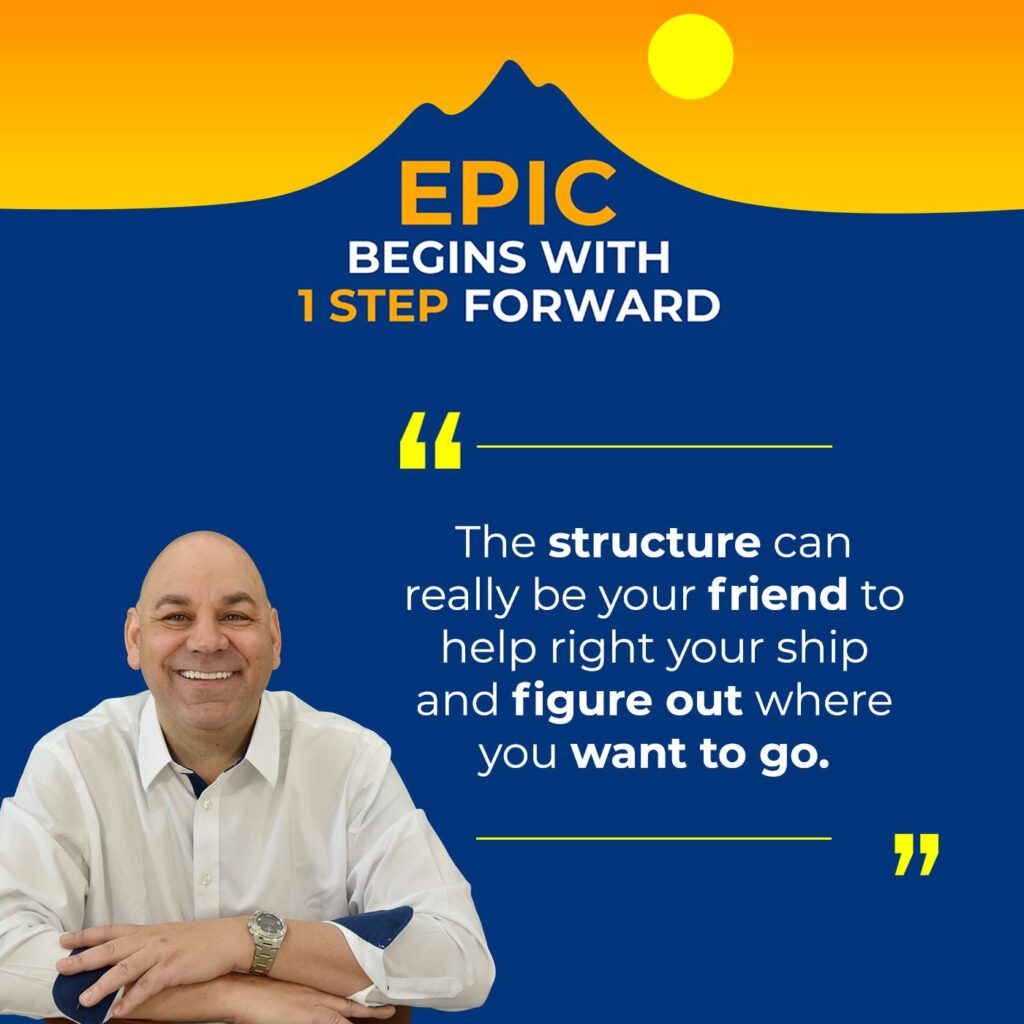
Not a lot of me out there have that level of experience or that mix of experience who we say so. Always happy to chat and thanks for an amazing conversation.
Not a problem. As always, I want to remind everyone, you can go to EpicBegins.com to get all kinds of information about me and the show. There will be stuff about Paul up there. Remember that epic choices lead to the epic life that you want.
Important Link
About Paul Teasdale
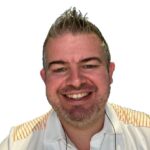 From sausage making to banking to Formula 1, and lots of other things in between, working in both the UK and in New Zealand, Paul’s stories will intrigue and inspire your audience, leaving them with practical ways to accelerate their performance.
From sausage making to banking to Formula 1, and lots of other things in between, working in both the UK and in New Zealand, Paul’s stories will intrigue and inspire your audience, leaving them with practical ways to accelerate their performance.
